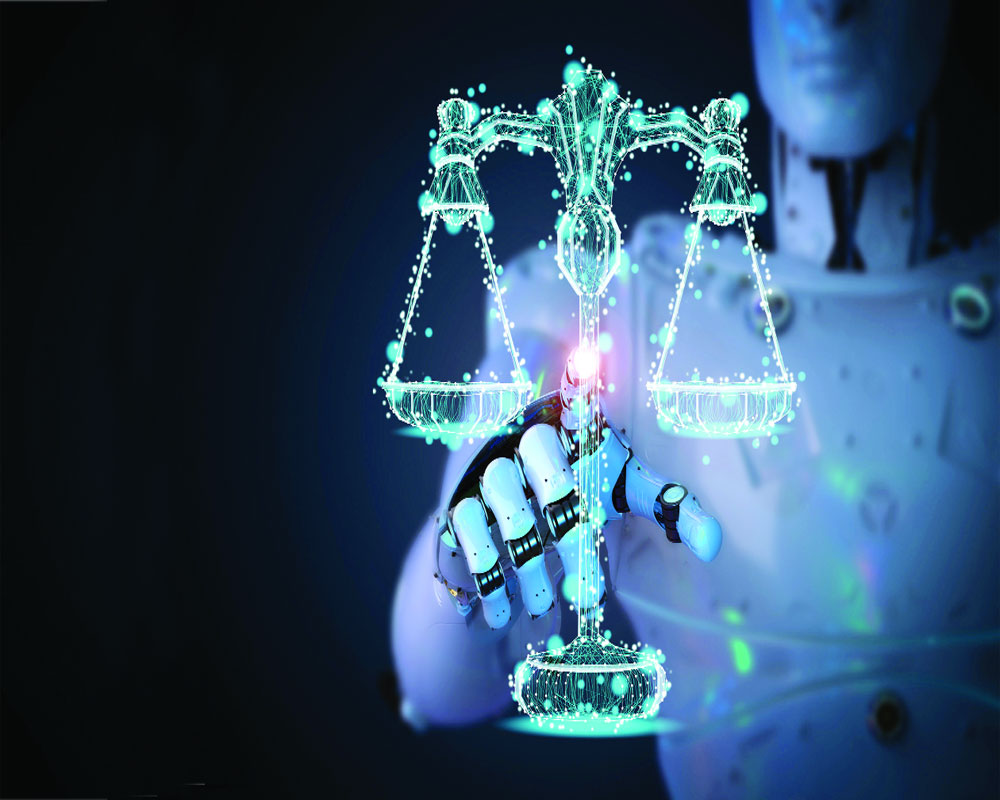Apart from performing mundane tasks, AI has the ability to accelerate all industries in multiple ways. Dr Sukhvinder Singh Dari tells you how it can benefit lawyers and the legal system
When we think of Artificial Intelligence, robots scurrying around performing tasks is a common mental image. However, AI has made its foray into our everyday lives years ago and we are constantly using it to perform daily tasks. Be it telling the Google Assistant to set a reminder, asking Siri to call your family or instructing Alexa to play a certain song, these are all examples of artificial intelligence.
Apart from performing mundane tasks, AI has the ability to accelerate all industries in multiple ways and yet, law may not be amongst the first few that come to mind. That’s mostly because the legal system in India is still fairly traditional and labour intensive. However, artificial intelligence has gnawed its way in and today, top lawyers are recognising the importance of it in increasing productivity and efficiency.
One would wonder how AI can help lawyers but when you delve deep, it has the potential to open up a world of opportunities freeing lawyers of many tasks and thereby, time. Let’s go over a few areas in which artificial intelligence can be a big boon to the Indian legal system.
Research
One of the most time-consuming and laborious tasks of a lawyer is research. It requires a keen eye and immense patience as one goes over pages and pages of similar material searching for the right data. With AI at their disposal, research can be made more efficient and accurate while reducing the time consumption. Artificial intelligence can sift through a whole lot of data to provide you the relevant rules and laws within seconds.
Big Data Analytics
With technology like machine learning taking over the world, it is now much easier to dig into a mine of information, study it and predict possible outcomes. Premonition AI, Lex Machina, etc., are examples of tools that can provide insights into the working of judges, litigators and lawyers. This can cut down on the inefficiencies of litigation massively as well.
Due Diligence
Due Diligence is a critical part of the legal processes. It involves taking utmost care of every clause, every step and every point in an agreement or contract before signing it. As would be assumed, it is very important and hence, even the slightest human error can lead to big consequences. With AI, it is easier to eliminate the possibility of error while accelerating the speed of the action.
Review of Contracts
iManage RAVN and KIRA Systems are popular AI tools that companies nationally and internationally use to review contracts. They help in examining data, predicting possible challenges, investigating and abridging documents and improving overall efficiency. Companies like Deloitte use these tools to go through all their contracts.
Lawyer Chatbots
There are a lot of questions that people have with reference to laws and regulations. Not always can they connect to a lawyer to clarify them. Artificial intelligence solves this problem with panache. Easy lawyer bots that have all the information they need for common queries can help clients serve themselves online. From preparing invoices, sharing different laws to predicting outcomes and forming agreements, there's a lot that these chatbots do. Some examples of AI bots are ROSS, Automio, DoNotPay, BillyBot, etc.
India is still discovering the magic of artificial intelligence in the legal system. It can significantly impact outcome and efficiency if incorporated into everyday tasks, giving lawyers more flexibility for every case. While it is more expensive, it provides a plethora of benefits that more than justify the cost.
For the legal industry to function at its optimum, a large part of the monotonous tasks will have to be automated using artificial intelligence. It is not the future, it is here and it is in the present. All we’ve got to do is embrace it.
The writer is Director, Symbiosis Law School, Nagpur
























